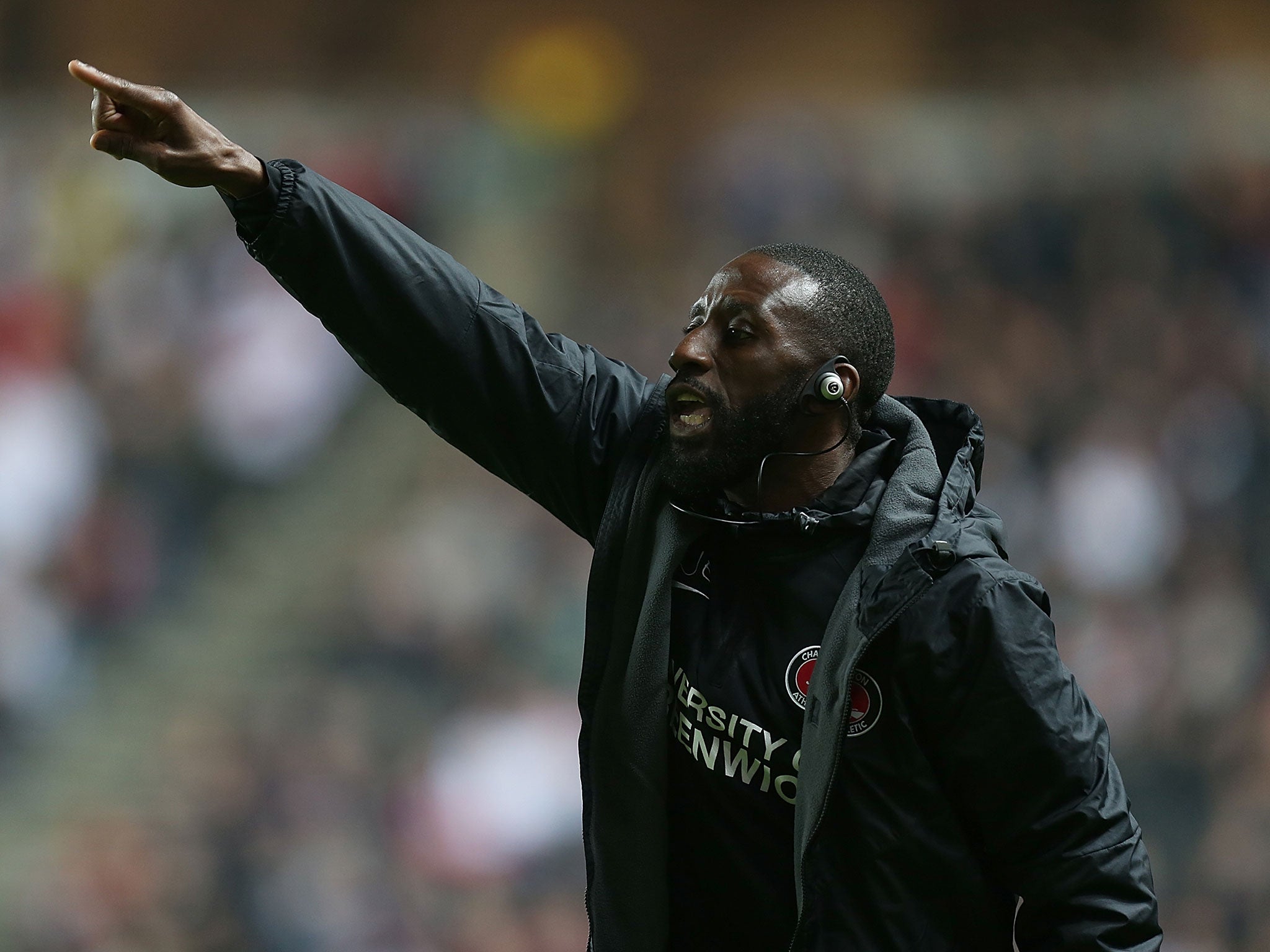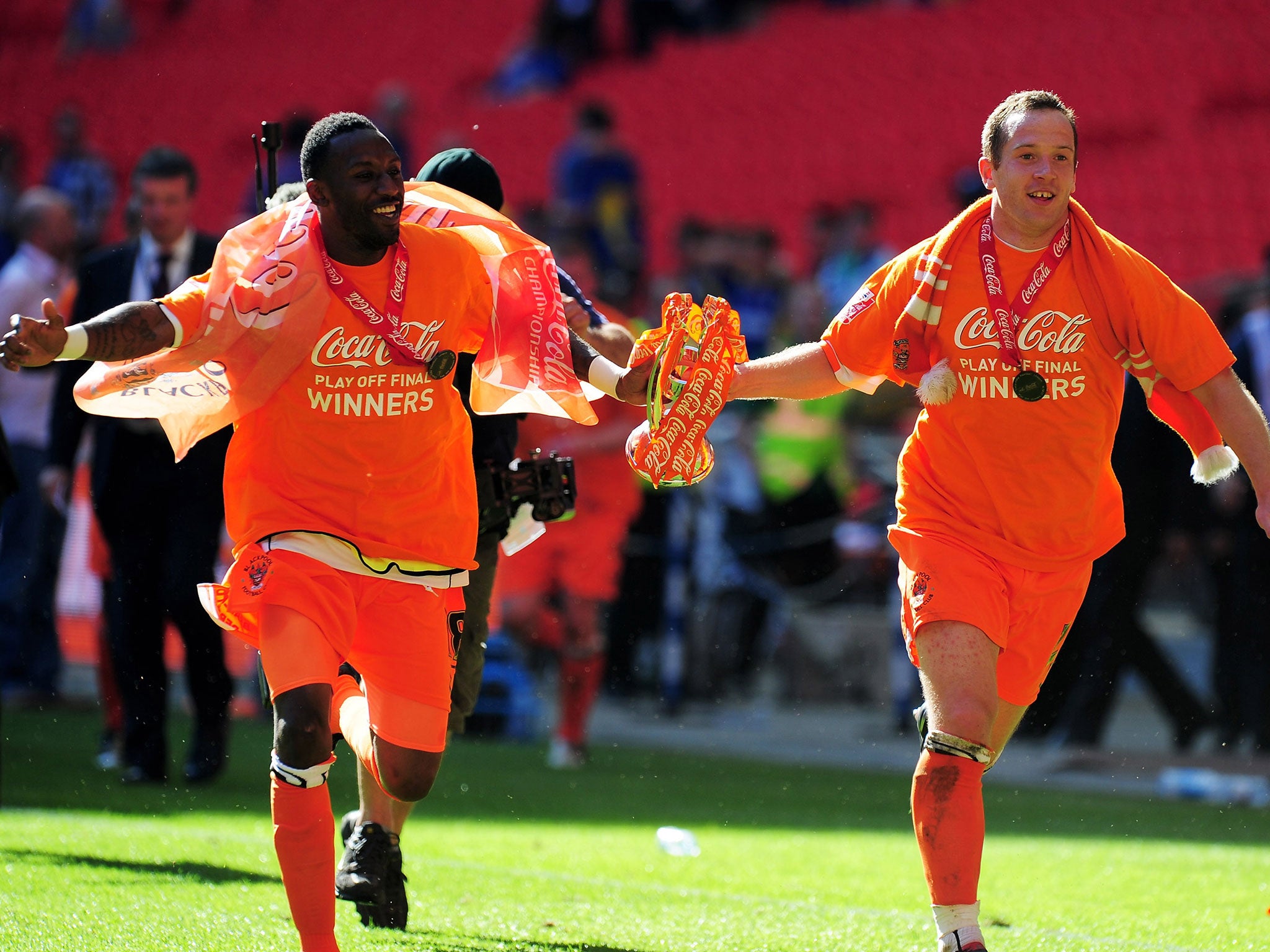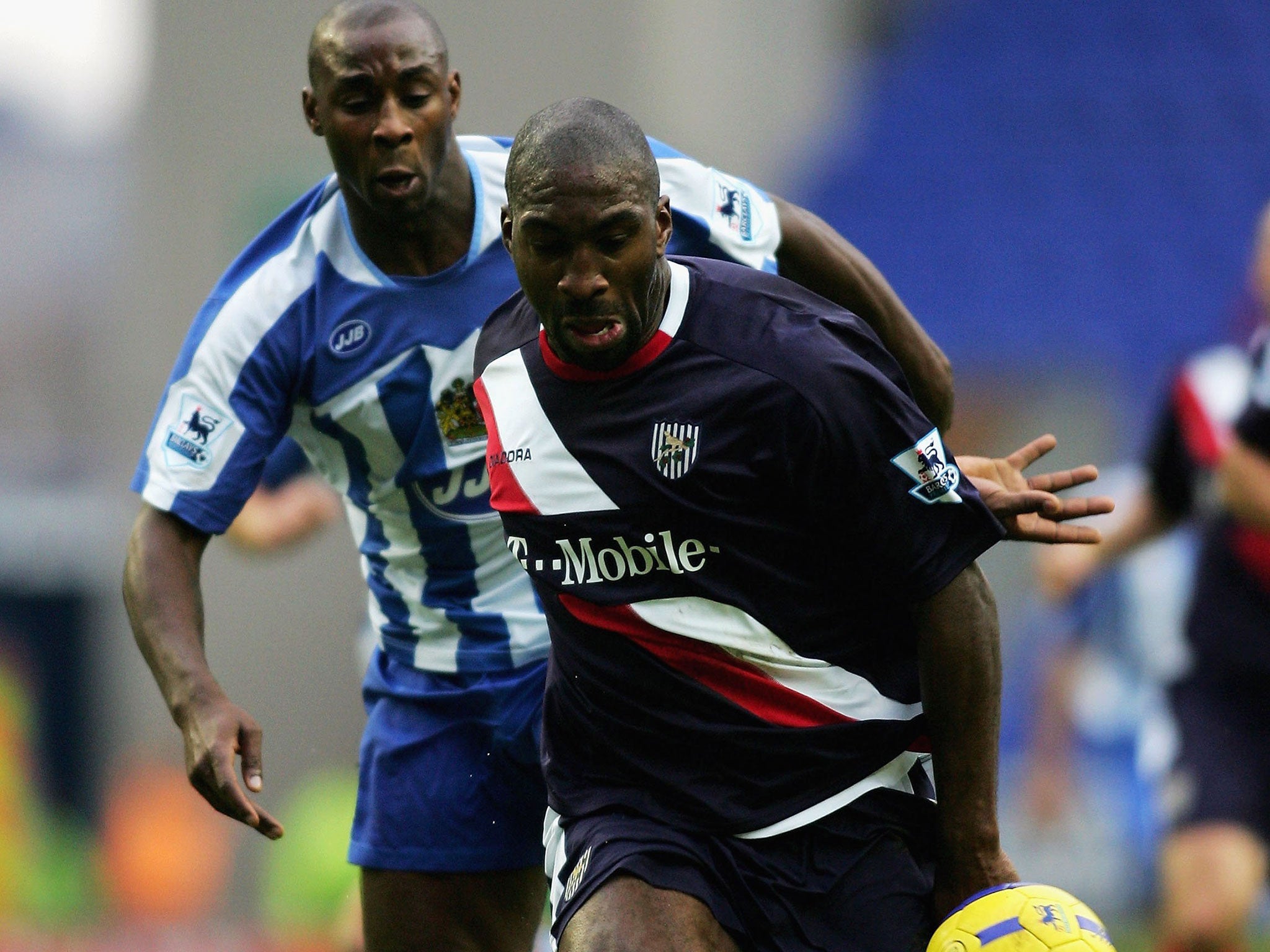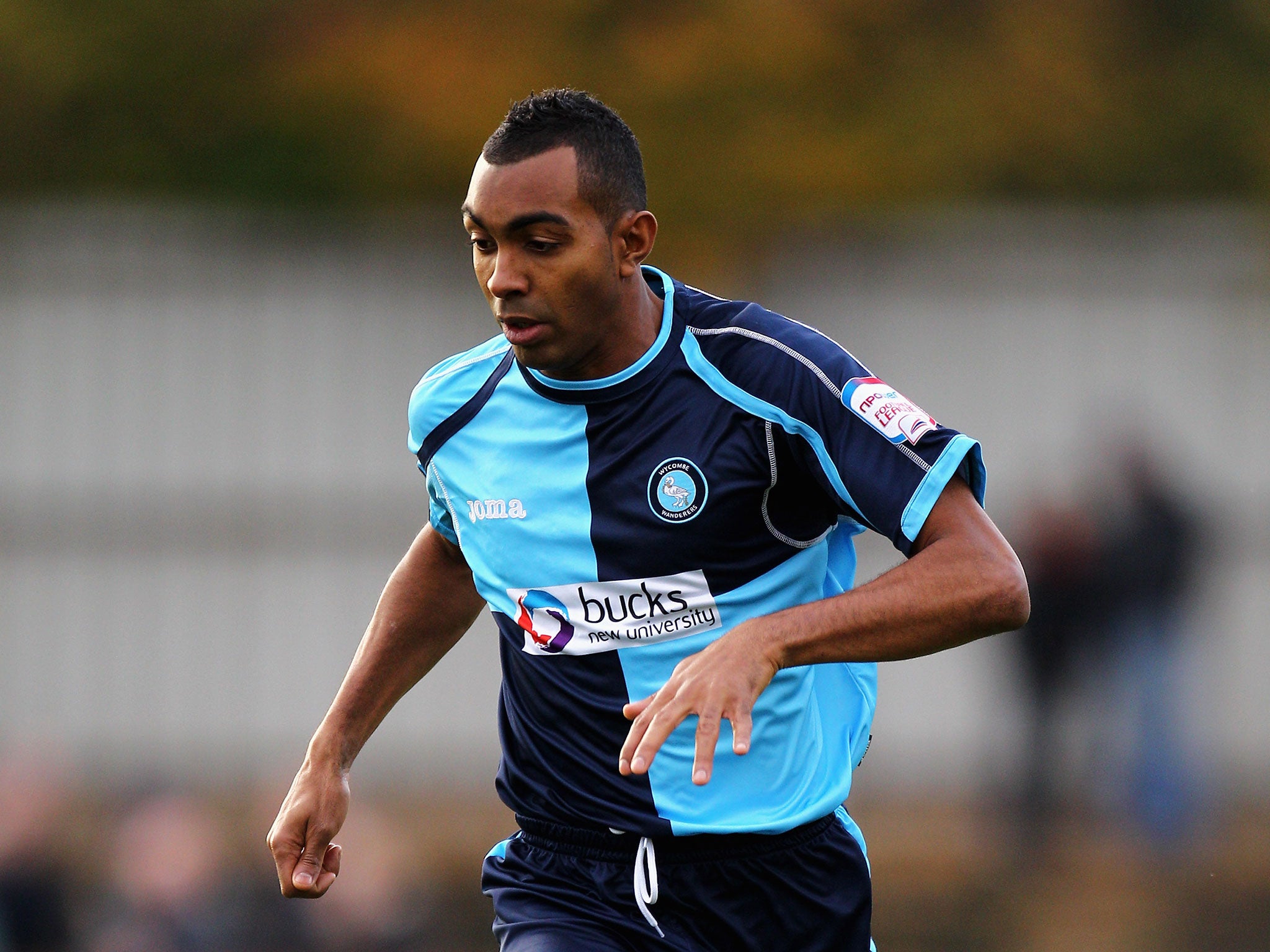Meet Jason Euell, Darren Moore and the next generation of black managers aiming for the Premier League
Ahead of tomorrow's publication of the 'Football Black List', the next generation of black coaches and managers spoke to The Independent about their experiences and ambitions

English football has always had a problem with not appointing enough black managers. There are currently just three in the 92 first team jobs in the professional game: Chris Hughton at Brighton and Hove Albion, Marcus Bignot at Grimsby Town and Keith Curle at Carlisle United.
Football accepts that it needs to change and the Football League has introduced an optional code where clubs can be obliged to interview black candidates for managerial positions, akin to the ‘Rooney Role’ in the United States.
There is no shortage of good candidates, especially in academy coaching and non-league football. Jack Pitt-Brooke spoke to four promising young black coaches who could all take the step up into professional first-team management in time.
On Tuesday this year’s ‘Football Black List’ will be revealed, marking the contributions of the most influential and most talented black people in football today.
Jason Euell, Charlton Athletic Under-23s manager

“My job is about getting players into our first-team, that is my remit. Fortunately at this club we have a pathway to the first-team that we have always shown over the last 20 years, and we continue to do that.
But I can’t sugar-coat what lies ahead, that would not be doing them any justice. I have to be real with them. There are going to be things that I am going to say that they are not going to like. That is what football is about.
I am trying to get them mentally prepared for first team football, as well as physically prepared. I have to pass on what I went through. People might say ‘that was ages ago’, but it wasn’t. I was able to play in the old era and the new era, and come through it.
Wimbledon was a great breeding ground for me, the school of hard knocks. It made me the footballer that I was and the person that I am. I am relaying that to them. I wasn’t given all of the luxuries that a lot of the players get today. So I have to be honest with them, developing them to understand what lies ahead.
After Kasey Palmer and Joe Gomez, we had Ademola Lookman who came through. He is one of those players who just has that natural talent. We had to get him a bit more understanding of the game, on the tactical side and decision making. As a boy he is very hard on himself, he hates losing and he hates making mistakes. I had to say: don’t always dwell on the things you didn’t do well at.
Ademola is one of the humblest kids you could meet, like Gomez. No one could say a bad word about them. That is what we do as a club. We want a good person as well as a good player.
Joe Aribo came to me at the beginning of last season, recommended to me by Marcus Gayle, who had managed him at Staines Town. I’m always out there speaking to coaches, agents and friends on the circuit. If I can find boys who are playing men’s football already, they are a foot ahead of the ones that haven’t.
I have had my career but I want the next generation of players to have the same. There are a lot more black coaches within grassroots, within the academy environment. That shows the understanding, society is changing. I don’t just see myself as a black coach, I am the role model, the big brother, the best friend, the father. They look at me as that person. I have to be able to relate to and understand what they could be going through every day. Not just on the grass but outside football.
I want to go into senior coaching and I want to get to the top. I want young black boys to see what I have achieved in my career, and what I am doing now in coaching. Out of 50 boys there might be two or three who say ‘I want to be a player then I want to be a coach, that’s what Jason did’. If that’s the pathway they choose, happy days.”
Darren Moore, West Bromwich Albion professional development phase coach

“I work with the Under-23s, the Under-18s but mainly the elite players in and around the first team, Sam Fields, Jonathan Leko, Kane Wilson and Rekeem Harper. They have had a massive transition from academy football into the first team, so I have to understand the pathway of their development.
Take Sam Field, he’s got to be able to showcase his talent up against Jake Livermore, Darren Fletcher and Claudio Yacob, and those boys are all internationals. Sam has to be better those three to get in.
Jonathan Leko is another one. He’s got to break into the quarter of Matty Phillips, Chris Brunt, James McClean and Nacer Chadli. He’s got unbelievable ability, he can definitely play in the Premier League. He’s got to know and understand the game, when, where and how to keep it safe, when, where and how to be defensively good for the team, as well as attacking.
Those boys are every bit as good as the pros but they need to understand the game and what the team needs and what is expected of them. That’s where I bring that cohesion in, from academy football to first-team football. It’s a really good role, but it’s hard for the lads. The money now is phenomenal, the pressure is more and more, the opportunity to make mistakes less and less. You need to get through the eye of a needle. So coaching is different from when I was an apprentice growing up. I don’t know if we give the players too much or the players need more. That’s the world of football and society.
There are more black coaches in football now, and more pathways into it. But there needs to be more. The figures are still alarming considering the pool of talent. There need to be more on that path, more getting the opportunity. And they have to be good enough, I am not just beating the drum.
I understand that in this industry when someone loses a job there is a quick replacement. But I think everybody should be given the opportunity to be interviewed for that role, to open up the pool a bit more. The figures at the moment would suggest that’s not happening.
I used to work for PFA as a coach educator and on the coaching courses I saw a lot of BAME coaches trying to get into the game, trying to get on a pathway. The coach education programme is another great career, they are crying out for coaches, from the grassroots to the professional game. It’s another route, like a player going out on loan.
There are a few black coaches who are doing very well: I’m a great admirer of Chris Ramsey and Paul Hall at QPR, Terry Connor at Ipswich Town and Kevin Betsy at the FA. It is great to see where they are within the club system, but it’s a gradual process. Now we have to keep that development going.”
Gavin Rose, Dulwich Hamlet manager
“I got the first-team job at here in 2009 but this is my 15th season running the Aspire Academy as well, in conjunction with Dulwich Hamlet.
The academy has a 5 to 11 bracket, which is community provision, sporting and anti-social workshops. Then we are a football academy from ages 11 to 18, coaching and education. We train at Bacon’s College in Rotherhithe and our partnership college is Sedgehill School in Lewisham.
There is a lot of overlap between the academy and the club. Naturally we have a lot of local boys, giving them the opportunity to further their careers, pursued education and be better role models and better people. Diallang Jaiyesimi signed a two and a half year contract at Norwich City last year, and we had Simeon Jackson and George Elokobi who got into the Premier League.
Successes are not only on the football pitch. Lamin Ojo pursued his football dream with us but was hell-bent on his education too and never took his eye off the ball. Now he’s working in the City with a staff team of 200 people underneath him.
My ambition as a person is to go as high as possible but today our challenge here is to be the best we can at a non-league level with Dulwich Hamlet. I wonder how many professional managers would be able to handle what we experience at this level. We have to book training facilities, we could use two or three different places in one week: King’s College playing fields in Brockley, Greenwich University in Eltham and Bromley FC.
We were not prepared for our run to the quarter-finals of the FA Trophy. On the day of the quarter-final replay at Macclesfield Town we got a call when we were on the coach, telling us it was postponed. We had to call Bromley FC to see if we could train there, as the boys had taken the day off and we might as well use it. The week after, we weighed up getting the train but we couldn’t get home the same night and a hotel was beyond our grasp, so we got the coach back.
We have volunteers but they’re here out of the kindness of their hearts. If you had someone in a paid role they would be finding solutions beforehand rather than trying to fire-fight.
I grew up in Peckham so I understand the local area. Seeing so many locals at our club, I can identify with them and the players coming through from the local area. Seeing the club being a community club, that’s where my heart lies as well.”
Kevin Betsy, England Under-15s head coach

I worked at Fulham for seven years which was a great apprenticeship and last year I got offered a role with the FA. My main role here is as head coach of the Under-15s, then I assist with the Under-16s and support the Under-17s when the calendar allows.
With the Under-15s we have five events throughout the year, so contact time with players is fairly short. The main challenge is about getting the players into an international frame of mind, into our DNA and how we want them to play going forward. We want to create an environment where they can be creative, take risks and make mistakes, and learn from them. When things go wrong, we are there to support them.
There are more black players from my generation who have gone into coaching, it has definitely improved. It’s it about having role models, to look up to, to aspire to be that person. For me there was Frank Rijkaard, who won the Champions League in 2006 and with the style of play that he did. He’s one I could say inspired me.
Then in England there was Chris Hughton, Chris Ramsey, Chris Powell, his assistant Alex Dyer, Paul Ince, John Barnes, Noel Blake and Keith Alexander. Then there’s Patrick Vieira, Thierry Henry and Claude Makelele.
With Wayne Allison and Brendan Baston at the FA and Bobby Barnes at the PFA, black people are doing fantastic work to help the next generation and increase the numbers. So players 10 years younger than me will see people in those roles and want to emulate them. Now black players go into business, media and player agency after playing. When we have this conversation again in 10 or 15 years time, there will be more going into coaching and management.”
Join our commenting forum
Join thought-provoking conversations, follow other Independent readers and see their replies
Comments